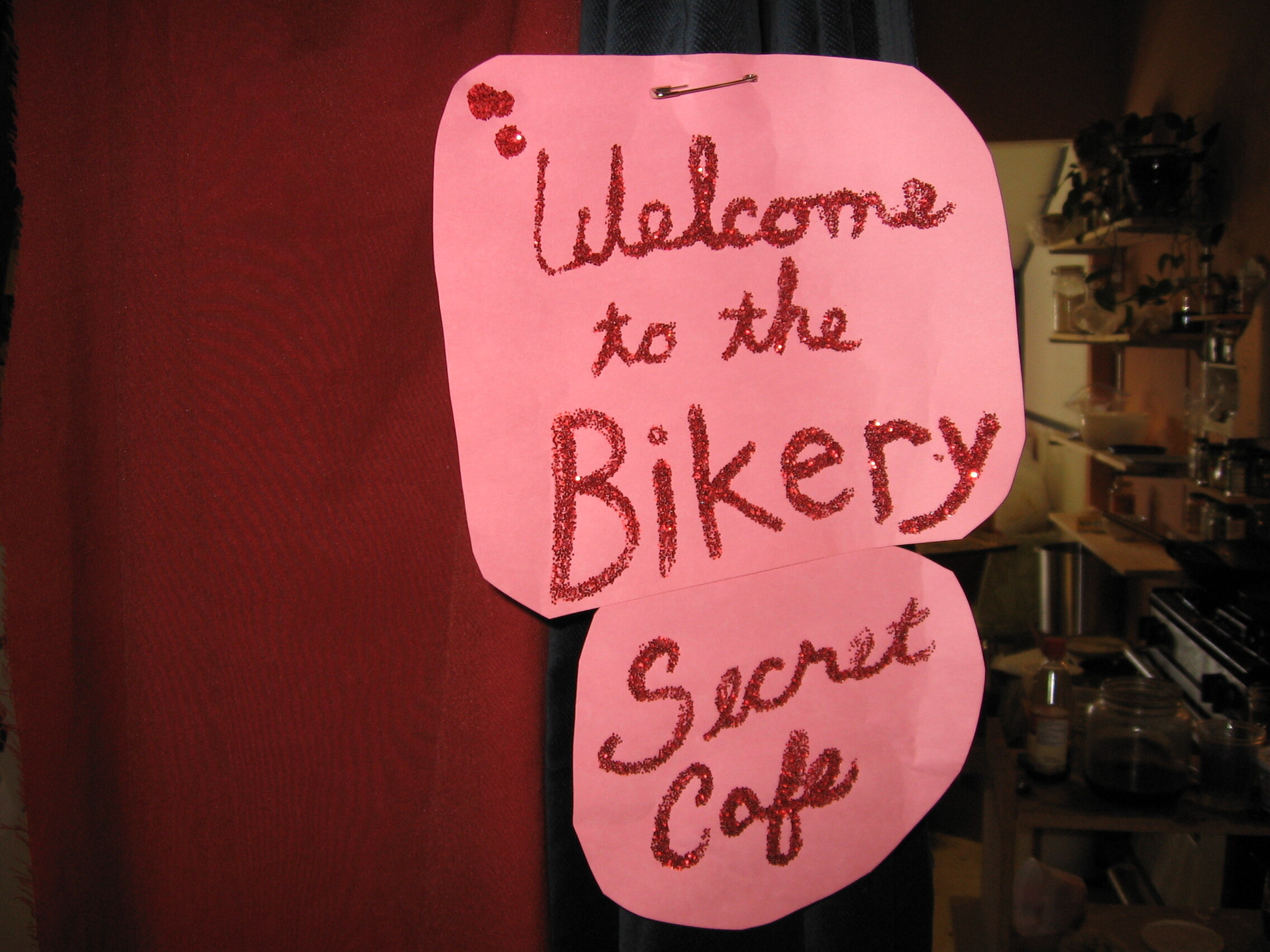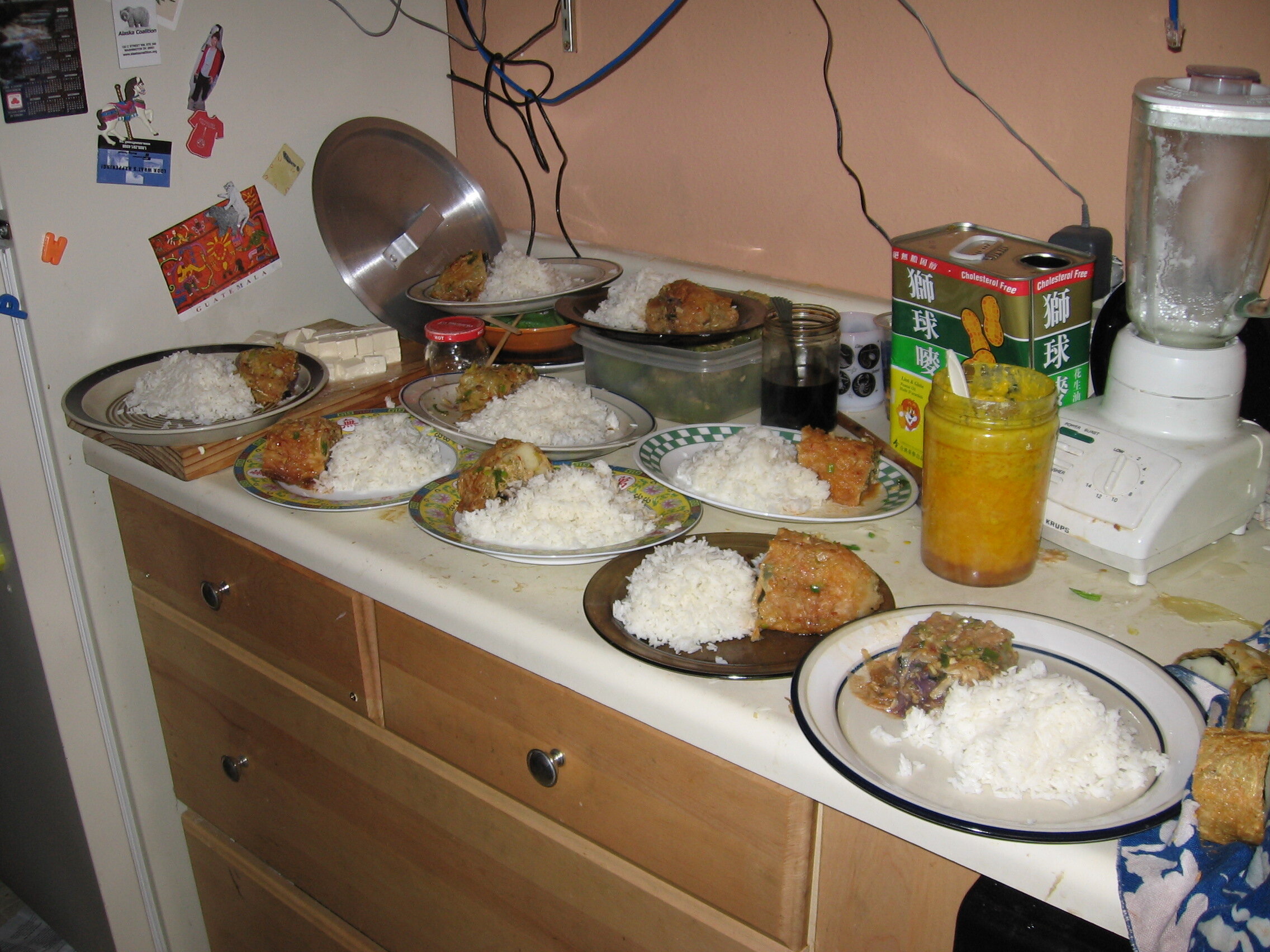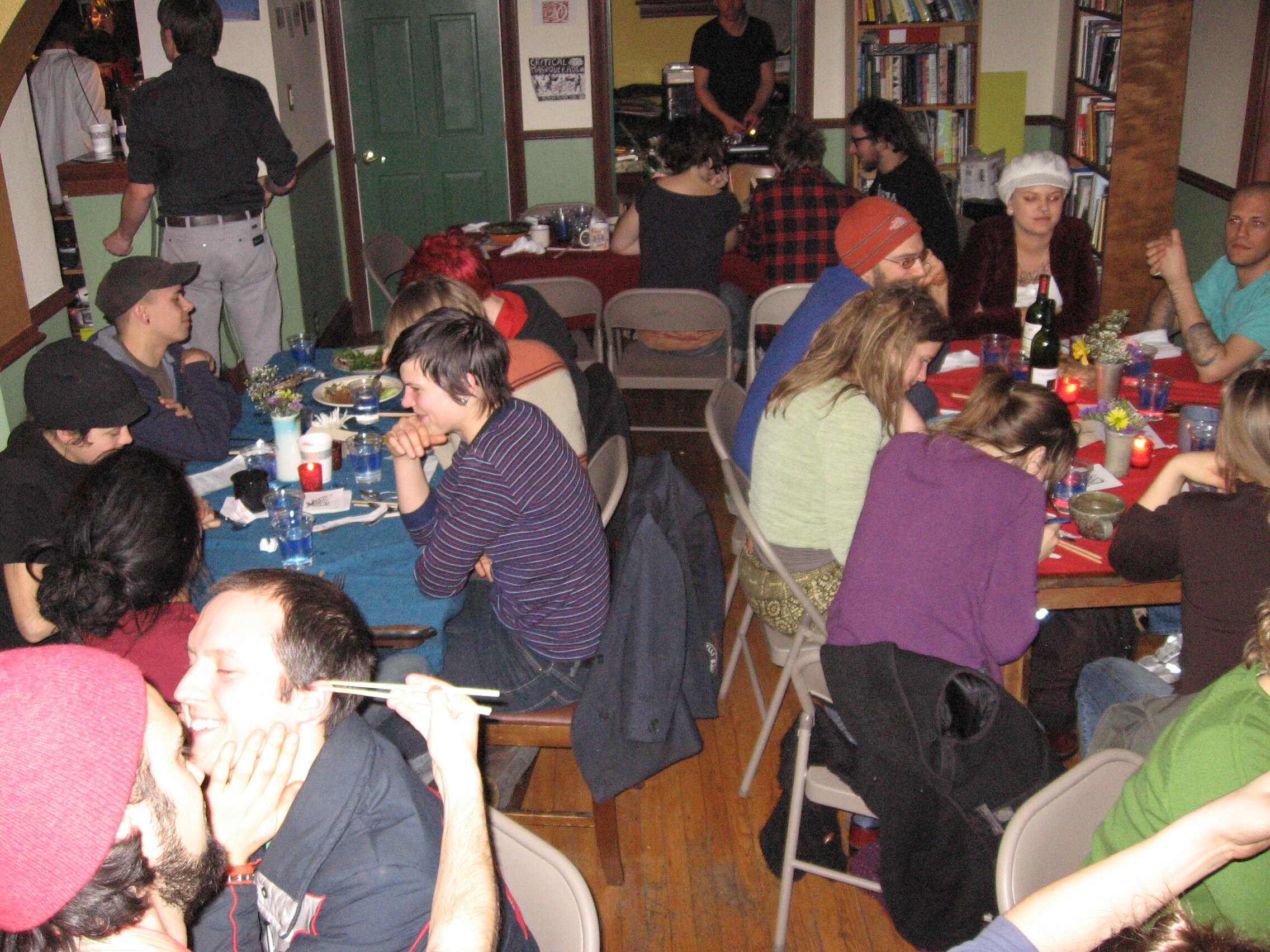Our History
The idea of a community bike kitchen in Seattle began on a bike ride across the United Kingdom in 2005. Co-founders Josh, Eric, Ben, and Lacey were participating in the G8 Bike Ride, in which more than 70 cyclists rode from London, England to Auchterarder, Scotland to protest nuclear proliferation. The Seattle-based cyclists started talking about how to create a bike project that would connect cyclists to other justice issues.
Back in Seattle, the founding group grew to include Andrea, Katie, Chevalier, Davey, Benji, Jax, Donald, Ellie, Ken and Kari. Over the course of several months these enterprising cyclists, punks, anarchists, and organizers met to discuss their approach to an anti-oppressive teaching space. The organizers wanted to challenge the white supremacy and cisheteropatriarchy they saw in even the most well-intentioned punk and anarchist spaces. They wanted to create a place to get mechanical help from experts with their hands in their pockets. The group raised money for necessary tools and equipment through ‘Secret Cafe’ nights, alley cat races, and scavenger hunts. The project took inspiration from BICAS in Tucson, where some of the organizers had been volunteers before coming to Seattle.
Beginning in 2005 Bikery volunteers started setting up a community bike repair shop in the parking lot of the Key Bank formerly at 24th and Union. All the tools and equipment were kept in the basement of the punk house across the street, and carried to the parking lot every Sunday. The bikery was incorporated as a nonprofit in Washington State on October 18, 2006. After two years in the parking lot, the group created a partnership with the Garfield Community Center and operated there for about a year. Volunteers had the cops called on them numerous times while shuttling bike parts and tools between 24th and Union and the Community Center because they looked like they were stripping bikes.
In 2008, the Bikery moved into its first brick-and-mortar shop space at 14th and South Main when an anonymous donor provided funding for a year of rent. The shop operated in the International District until 2013 when Working Dog Bikes vacated the space. The Bikery has had its up and downs throughout its 15-year history, but its continued relevance attests to the validity and need for mutual aid and collaborative teaching spaces. Bikes are community-building tools of protest against oil-dependent capitalism and patriarchal norms of bodily autonomy. In a world where access to education and knowledge is expensive and racist, spaces like the Bikery provide accessible and safer places to learn skills from peers, as well as build community.
Support the Bikery’s programs and services by becoming a volunteer or donating!




